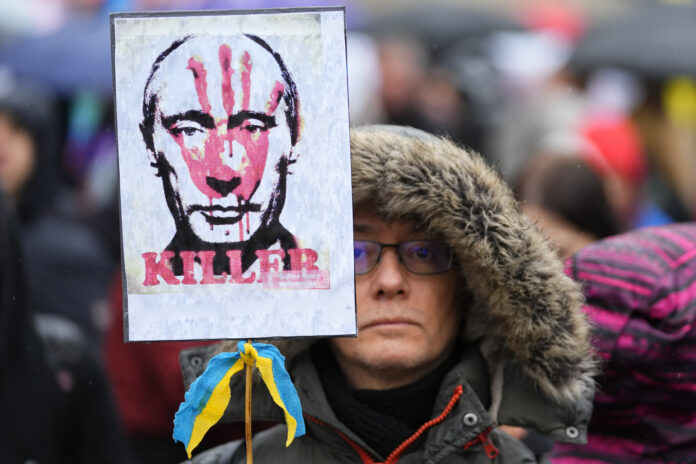Russian President Vladimir Putin on Monday said Russia had no issue with Finland and Sweden, but that the expansion of military infrastructure on their territory would demand a reaction from Moscow.
The warning comes as the Nordic countries move closer to joining NATO as a result of Putin’s unprovoked and bloody invasion of Ukraine, a sovereign democracy.
Putin, speaking in Moscow at a summit of the Russian-led Collective Security Treaty Organisation (CSTO), said NATO’s expansion was a problem for Russia and that it must look closely at what he said were the U.S.-led military alliance’s plans to increase its global influence.
Finland and Sweden joining NATO was a distant prospect just months ago.
But Russia’s attack on Ukraine has prompted both Nordic countries to rethink their security needs and seek safety in an alliance they stood apart from during the long Cold War.
The war in Ukraine, which Moscow calls a special military operation but which has already killed thousands and displaced millions, shattered long-standing security policies and fueled a wave of public support for NATO membership in both countries.
The decision by Finland and Sweden to seek membership in NATO also comes as the military alliance prepares for a much broader strategic shift towards a more assertive defensive posture.
The message the alliance aims to send to Russia is clear, said Latvian Prime Minister Krišjānis Kariņš during a press conference in the Canadian capital of Ottawa last week.
Trending Stories
Buffalo supermarket mass shooting: Here’s what we know so far
Buffalo mass shooting: Gunman who killed 10 was on authorities’ radar
Kariņš spoke alongside Canadian Prime Minister Justin Trudeau during the latter’s announcement that one Canadian general officer and up to six staff officers will be heading to Latvia to support and contribute to the leadership of the NATO’s Multinational Division North.
NATO chief says Sweden, Finland joining alliance would be ‘historic moment’
The division is currently led by Denmark and supports defence planning for the Baltic member states, along with coordination of the activities by NATO’s Enhanced Forward Presence in Latvia, Estonia, Lithuania and Poland. NATO describes those battle groups as “robust and combat-ready forces.”
Canada leads the Enhanced Forward Presence battle group in Latvia.
The deployment comes as NATO leaders prepare to meet in Madrid, Spain, late next month. While there, they are expected to chart a more assertive defensive vision for the future of the alliance amid what Trudeau described as the “spectacularly poor” decision by Russia to invade Ukraine in February.
“We realize that we may, we do, have to reassess the risk posture and how much we need to stand together against potential Russian incursion and aggression and that is a conversation we are having towards Madrid and we will certainly be having in Madrid,” Trudeau said.
He added that the longstanding operating assumptions of NATO have been that in the event a member is invaded by Russia, other members would respond under Article 5 to push them back out.
But the massacres and atrocities committed by Russians against Ukrainians fundamentally change that.
“The other thing that has given people pause is Bucha, is Mariupol, is the atrocities that Russians are committing in territory they occupied,” Trudeau said.
“The idea that there would be even an understanding that ‘the Russians could advance but then we’d come in and push them back’ as something that is in any way acceptable is something we have to re-calculate.”
With files from Global’s Amanda Connolly.
© 2022 Reuters



